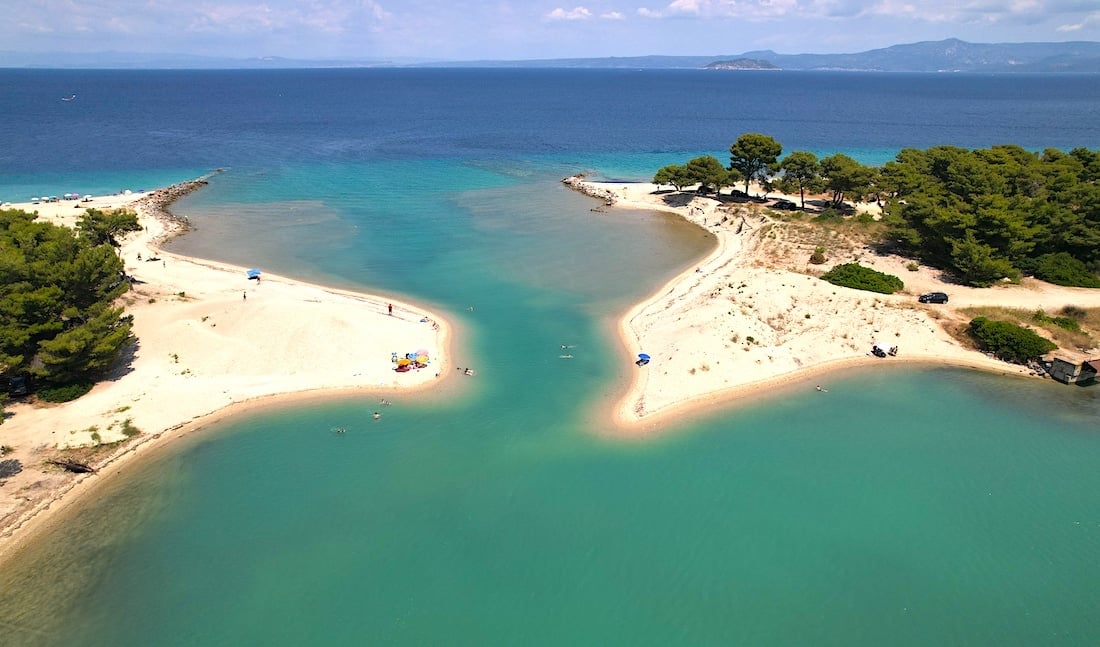

The latest wellness phenomenon to sweep TikTok, dubbed “Ocean Therapy,” has deep roots in ancient Greece. The very name it’s formally known by, Thalassotherapy, reveals its origins, stemming directly from the Greek words “thalassa” (sea) and “therapeia” (healing or therapy).
This emphasis on the “sea” as a source of “healing” is precisely what makes Thalassotherapy so compelling. Whether it’s a cold dip in the Aegean, a barefoot stroll on sun-warmed sand, or simply inhaling the revitalizing sea air, the practice champions physical and mental contact with the marine environment as profoundly cathartic and psychotherapeutic.
TikTok users echo centuries of belief, proclaiming that a “dip in the sea washes all stress away” and that the immediate rush of dopamine provides a natural “happiness hit” – a testament to the sea’s inherent power.
@mrki.12
The notion of the sea as a therapeutic agent isn’t a modern invention. Centuries before hashtags, Hippocrates (c. 460 – c. 370 BC) was widely credited with recognizing the therapeutic qualities of seawater.
He observed the positive effects of seawater on the injured hands of fishermen, noting its ability to prevent infection and promote healing. He recommended seawater baths for various ailments, including muscular and joint pains, arthritis, and skin conditions. His writings, such as “On Airs, Waters, and Places,” show an awareness of how environmental factors, including water, impact health.
Euripides (c. 480 – 406 BC), a famous tragedian, wrote that “the sea heals man’s illnesses,” explicitly linking the sea to health. Homer’s epics, like the Iliad, mention characters bathing in the sea for purification and refreshment after battle, suggesting a recognition of its cleansing and restorative properties.
18th-century English physician Richard Russell famously prescribed sea bathing and even seawater consumption for his patients. His recommendations were a continuation of an understanding that stretches back to antiquity, embodying the very essence of Thalassotherapy.
@nastasiaglow ocean therapy
#oceangirl #oceantherapy #beach #greece #travel #boats #ocean #therapy #IslandVibes
Today, modern research reinforces this ancient wisdom. Scientific studies now confirm what the Greeks intuited: contact with the sea can significantly:
According to a 2019 review, thalassotherapy can benefit health in several ways.
When a person’s skin comes in contact with seawater, the sodium and chloride can penetrate and enter the body. From there, it can affect skin cells by altering the pressure inside them, which in turn may inhibit cell death.
Air near the sea also tends to be cleaner than air in cities and lower in common allergens. This may mean that people with conditions such as asthma or hay fever can breathe more easily by the ocean.
The review added that a number of plant and animal substances from the sea have beneficial properties. For example, salmon oil and cod liver oil are sources of omega-3 fatty acids.
Some thalassotherapy programs also include other things that benefit health, such as exercise and time for relaxation. This may further explain its popularity as an alternative therapy.
Proponents of thalassotherapy claim that sea air can be beneficial. It contains tiny droplets of seawater, which people inhale when they breathe in. This may mean they ingest small amounts of minerals this way, but no research has investigated if this is true or whether it can impact health.
Related: Greece Ranks Among Top Five in Europe for Cleanest Bathing Waters
